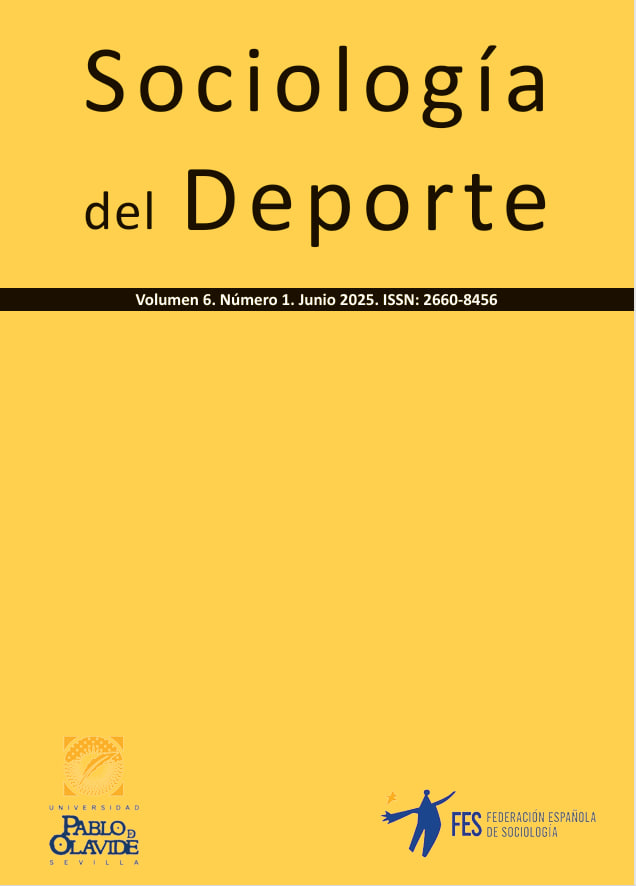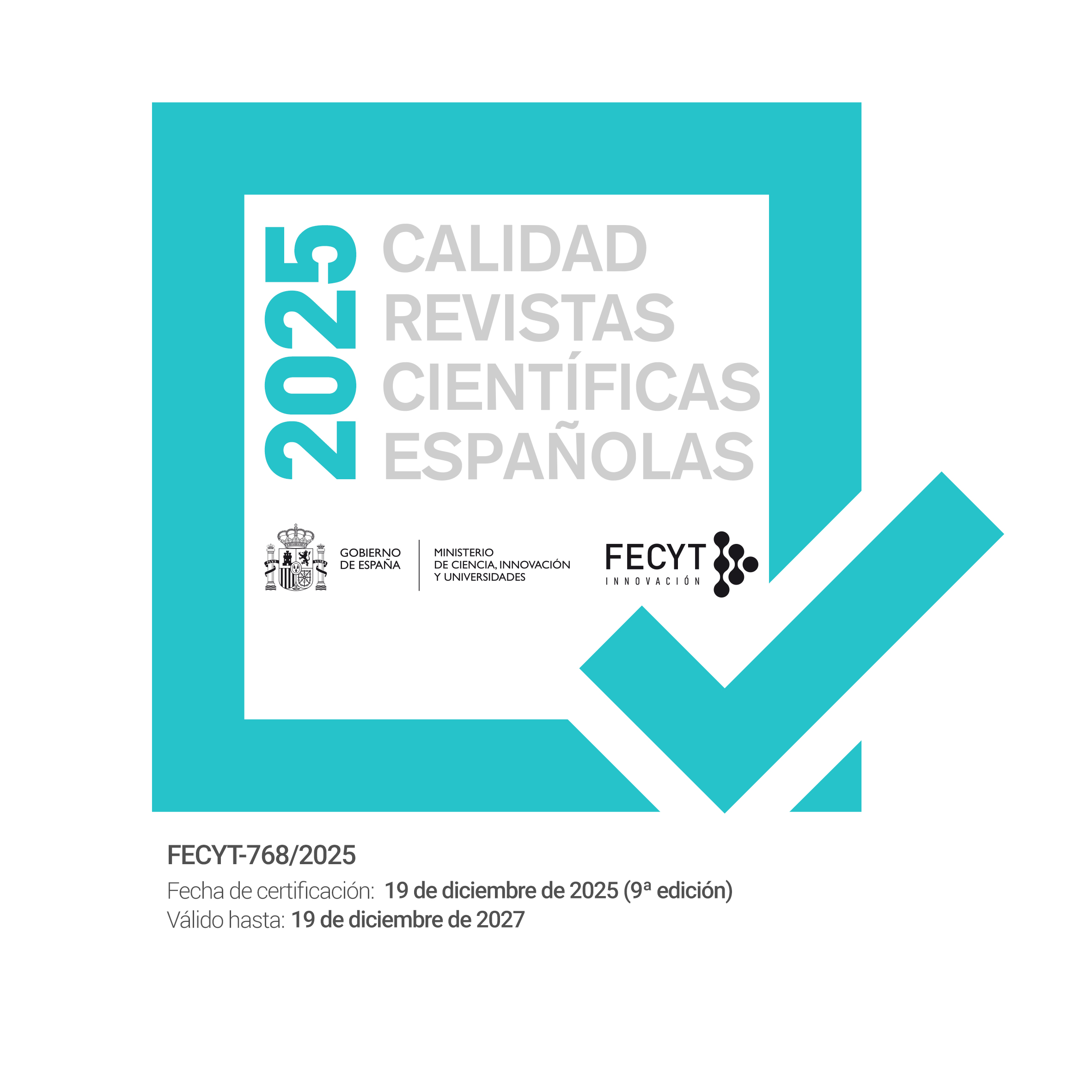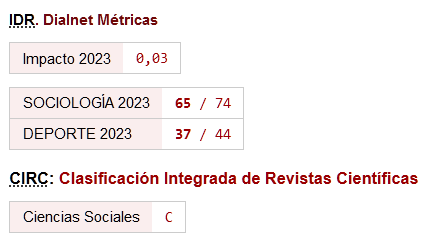Expert chess players' perception of cheating in online chess.
DOI:
https://doi.org/10.46661/socioldeporte.11708Keywords:
chess, cheating, field experiment, Performative expectancies of interactionAbstract
Cheating in chess has emerged as a significant concern with the advent of advanced technologies, particularly artificial intelligence. This paper presents the partial findings of a broader project investigating the complexities of cheating in over-the-board and online chess. It only analyses the results from an online chess experiment featuring 24 expert players. The findings explore the conditions under which suspicions arise, the arguments for and against allegations, and the tactics employed by those players that could cheat by using external aid during the experiment.
Downloads
References
Anderson, Ashton, Kleinberg, Jon y Mullainathan, Sendhil. 2016. Assessing human error against a benchmark of perfection. KDD, 705-714. New York: Association for Computing Machinery.
https://doi.org/10.1145/2939672.2939803
Barnes, David J., y Hernandez-Castro, Julio. 2015. On the limits of engine analysis for cheating detection in chess. Computers and Security, 48, 58-73.
https://doi.org/10.1016/j.cose.2014.10.002
Biswas, Tamal & Regan, Kenneth. 2015. Measuring level-k reasoning, satisficing, and human error in game- play data. En 2015 IEEE 14th International Conference on Machine Learning and Applications (ICMLA), 941-947.
https://doi.org/10.1109/ICMLA.2015.233
Bourdieu, P. (2008). El sentido práctico. Madrid: Siglo XXI.
Chess.com. 2024. "Fair play on chess.com." 7 Febrero. https://www.chess.com/fair-play#fair- play-numbers.
Ermisch, John, Diego Gambetta, Heather Laurie, Thomas Siedler & Noah Uhrig.2009. Measuring people's trust. Journal of the Royal Statistical Society Series A: Statistics in Society, 172(4), 749-769.
https://doi.org/10.1111/j.1467-985X.2009.00591.x
García, Leontxo. 2021. Ajedrez y ciencia, pasiones mezcladas. Barcelona: Crítica.
Garfinkel, Harold.1963. A Conception of, and Experiments with, "Trust" as a Condition for Stable Concerted Actions. En O.J. Harvey (ed.) Motivation and Social Interaction (pp. 187-238). Ronald Press.
Goffman, Erving.1969. Strategic interaction. Philadelphia: Univ. Pennsylvania Press.
Goldowsky, Howard.2014. How to catch a chess cheater. Chess Life, Junio, 22-30.
Kasparov, Garry.2017. Deep Thinking. London: John Murray
Kim, Jaeha & Shin, Davin. 2023. Chess Surges in Popularity Post-Pandemic. The Echo, 27 de abril https://thetenaflyecho.com/19255/arts-entertainment/chess-the-resurgence-of-
the-game/
Laarhoven, Thijs, y Ponukumati, Aditya. 2022. Towards transparent cheat detection in online chess: An application of human and computer decision-making preferences. En International Conference on Computers and Games, 163-180. Cham: Springer Nature.
https://doi.org/10.1007/978-3-031-34017-8_14
Patria, Reyhan, Favian, Sean, Caturdewa, Angoro, Suhartono, Derwin. 2021. Cheat detection on online chess games using convolutional and dense neural network. En 2021 4th International Seminar on Research of Information Technology and Intelligent Systems (ISRITI), 389- 395.
https://doi.org/10.1109/ISRITI54043.2021.9702792
Robinson, Joshua & Beaton, Andrew. 2020. The Real Queen's Gambit: Catching Chess Cheaters. The Wall Street Journal. 8 Diciembre 2020. https://www.wsj.com/articles/the-real-queens-gambit-catching-chess-cheaters-11607439491.
Sánchez García, Raúl & Fele, Giolo.2015. Normatividad en deporte: una reespecificación etnometodológica. Empiria. Revista de Metodología de las Ciencias Sociales, (30), 13-31.
https://doi.org/10.5944/empiria.30.2015.13883
Stark, David. 2011. The sense of dissonance: accounts of worth in economic life. Princeton Univ. Press.
Svensen, Tarjei, J. 2025. "2024 Year In Review". Chess.com, 18 febrero https://www.chess.com/article/view/year-in-review-2024
Turowetz, John & Rawls, Anne W.2021. The development of Garfinkel's 'Trust'argument from 1947 to 1967: Demonstrating how inequality disrupts sense and self-making. Journal of Classical Sociology, 21(1), 3-37.
https://doi.org/10.1177/1468795X19894423
Velasco, Honorio M., Ángel Díaz de Rada, Francisco Cruces, Roberto Fernández, Celeste de Madariaga & Raúl Sánchez. 2010. La sonrisa de la institución: confianza y riesgo en sistemas expertos. Editorial Universitaria Ramón Areces.
Watson, Rod.2009. Constitutive practices and Garfinkel's notion of trust: Revisited. Journal of Classical Sociology, 9(4), 475-499.
https://doi.org/10.1177/1468795X09344453
Zaksaitė, Saloméja. 2020. Cheating in chess: a call for an integrated disciplinary regulation. Kriminologijos studijos, 8, 57-83.

Downloads
Published
How to Cite
Issue
Section
License
Copyright (c) 2024 Raúl Sánchez García, Héctor Laiz-Ibanez

This work is licensed under a Creative Commons Attribution-NonCommercial-ShareAlike 4.0 International License.









